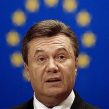
Ukraine Expels Czech Diplomats, Jeopardizing Talks with the European Union
Publication: Eurasia Daily Monitor Volume: 8 Issue: 96
By:

Ukraine has expelled two Czech diplomats, explaining that they had gathered military secrets and hired local assistants who now face prison sentences. This is an extraordinary event as Ukraine has avoided scandals involving the expulsion of Western diplomats in the past. Moreover, this happened at a crucial moment when Ukraine and the European Union, which admitted the Czech Republic into membership in 2004, are about to complete political association and free trade talks. The scandal may affect the outcome of the talks. The Czechs have accused Ukraine of taking revenge for Prague granting political asylum early this year to the former Ukrainian Economy Minister Bohdan Danylyshyn.
On May 13, the Ukrainian foreign ministry summoned the Czech charge d’affaires, Vitezslav Pivonka, to announce that two officials from the Czech military attaché’s office were declared persona non grata for gathering Ukrainian state secrets. The ministry’s spokesman, Oleg Voloshyn, said this was done at the request of the Security Service of Ukraine (SBU). He added that the expelled Czechs were a colonel and a major, so they were not career diplomats.
The SBU told a briefing later that the expelled Czech nationals had hired two Ukrainian “accomplices” who gathered secret information for them for several years. In particular, the spies wanted to learn more about Kyiv-based aviation plant No. 410, Ukraine’s plans to produce An-70 and An-178 aircraft, projects in which the Yuzhmash missile manufacturer is involved, the Adros jamming systems designed to protect helicopters from infrared-guided missiles and the satellite navigation systems with which the T-84 U Oplot tanks are equipped. The SBU stressed that it managed to film the exchange of money for secret documents between the foreign spies and their Ukrainian informants (Ukrainska Pravda, May 13).
The Czech reaction was immediate. The Czech Foreign Minister, Karel Schwarzenberg, suggested that Ukraine acted in revenge for Prague granting political asylum last January to the former Ukrainian Economy Minister Bohdan Danylyshyn (Ukraina TV, May 14; Kommersant-Ukraine, May 16). Last summer, Danylyshyn, who served in the 2007 – 2010 government of Prime Minister Yulia Tymoshenko, was charged with abuse of office for awarding contracts without tenders. He fled to the Czech Republic and was put on the international wanted list by Ukraine (EDM, January 14). Ironically, on May 17, parliament legalized awarding contracts without tenders (UNIAN, May 17). Danylyshyn was granted asylum on January 13, and a court in Prague refused to extradite him to Ukraine last February, while the EU and the United States reacted to the case of Danylyshyn and several arrests of former ministers on corruption charges late last year by warning Kyiv against selective justice. Tymoshenko, who is an opposition leader now, is also facing such charges, and many local and foreign observers suspect that political motives lie behind them.
Kyiv denied that the expulsion of the Czech diplomats was in response to the Danylyshyn affair, claiming that the two Czechs had started spying long before Danylyshyn was appointed as a minister (Ukraina TV, May 14). Nonetheless, Schwarzenberg had reason to speak about links between the spy scandal and Danylyshyn’s asylum. The granting of asylum to him by Czechs has been a huge blow to Ukraine’s international image at a time when Kyiv is negotiating political association with the EU; the two sides say they plan to complete the process this year. Kyiv wants to avoid similar blows in the future by showing Western democracies that it can retaliate. Otherwise Kyiv might have settled the spy affair with Prague without any public scandal. The former state reserve chief, Mykhaylo Pozhyvanov, who also served in the Tymoshenko government, applied for asylum in Austria early this year and is awaiting Vienna’s decision. Hardly by coincidence, the SBU mentioned that one of the local assistants of the spies had applied for political asylum in the Czech Republic and was detained while trying to leave Ukraine (Ukrainska Pravda, May 13).
Valery Chaly, a senior expert from the Kyiv-based Razumkov think tank and former deputy foreign minister, suggested that the spy scandal could sink the association talks. He said that an association agreement with the EU would not come into force if the Czech Republic as an EU member chose not to ratify it (www.liga.net, May 17). The head of the EU office in Ukraine, Jose Manuel Pinto Teixeira, called for caution saying that support from all EU members would be essential for Ukraine’s EU integration. The Ukrainian foreign ministry’s EU department director, Vasyl Filipchuk, tried to put a brave face on it, however, saying that the scandal would not affect relations with the Czech Republic nor with the EU (UNIAN, May 17). Still, Prague decided to expel a Ukrainian military attaché in response. The Ukrainian foreign ministry said this reaction by Prague was “inadequate” as the diplomat was not accused of anything, so this was clearly retaliation (Interfax-Ukraine, May 17).




